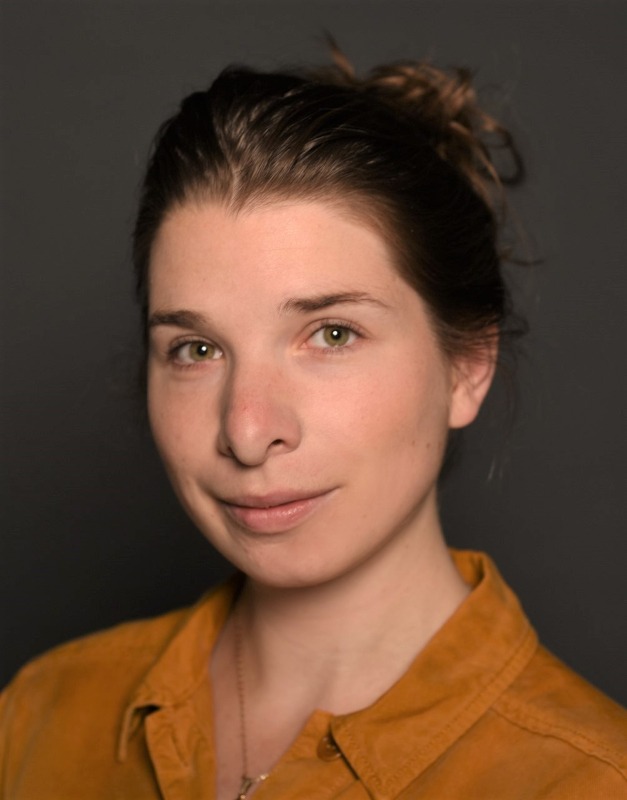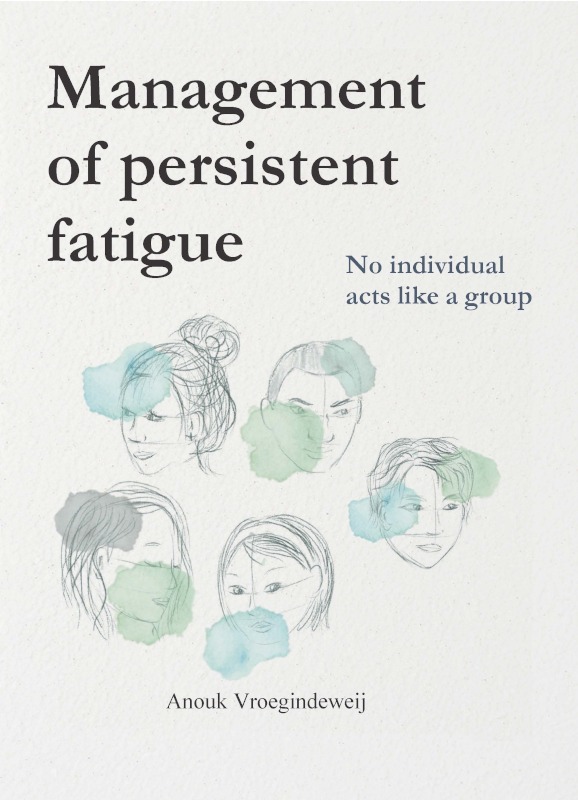In adolescents and young adults with chronic fatigue, both personalized life style advice and general dietary advice could contribute to improvements in fatigue severity, self-efficacy, and quality of life. Although the improvements were small, these were significant and sometimes clinically relevant, concluded Anouk Vroegindeweij (UMC Utrecht) in her PhD thesis. Importantly, the analyses revealed variability in individual outcomes, illustrating that what works at the group level does not necessarily translate to an individual patient.
Fatigue is defined as ‘extreme tiredness resulting from physical or mental exertion or illness’. When severe, it becomes persistent and unrelieved by rest, negatively impacting the physical, social, and academic functioning, as well as the mental well-being of adolescents with chronic health conditions. Since there is no cure for persistent fatigue, treatment focuses on symptom management. The PhD thesis by Anouk Vroegindeweij, MSc (Department of Pediatric Rheumatology/Immunology and Infectious Diseases and Department of Pediatrics, Wilhelmina Children’s Hospital, part of UMC Utrecht) therefore explored self-management strategies to address persistent fatigue in adolescents and young adults. In her research, Anouk used a biopsychosocial model of fatigue, which considers persistent fatigue to be the result of interactions between factors from the biological, psychological, and social domains.
Dr. Anouk Vroegindewei
Anouk’s research focused on 60 patients diagnosed with various fatigue syndromes such as Q fever Fatigue Syndrome (QFS), Myalgic Encephalomyelitis/Chronic Fatigue Syndrome (ME/CFS), post-COVID-19 condition (PCC), and Juvenile Idiopathic Arthritis (JIA). Bearing in mind that many centers providing guided therapies (such as cognitive behavioural therapy) often have long waiting lists, Anouk and co-workers explored the possibilities within the realm of self-management. Two self-management strategies were investigated: (1) personalized lifestyle advice, and (2) generic dietary advice. Anouk evaluated the effectiveness of these strategies via a randomized cross-over clinical trial of 32 weeks at the group level as well as a multiple single-case observational design at the individual level to capture real-time data via smartphone on fatigue experiences. The hypothesis was that personalized lifestyle advice will be more effective, given the diverse biopsychosocial factors contributing to fatigue among participants, which can be directly addressed through tailored advice.
The clinical trial results showed that both personalized lifestyle advice and generic dietary advice were equally effective in improving fatigue severity, self-efficacy, and quality of life. Although the improvements among participants were small, these were significant and sometimes clinically relevant. These promising findings suggest that self-management advice (focusing on e.g. improving sleep hygiene, daytime resting and/or physical activity) could be beneficial to bridge the waiting period for more intensive, guided therapies. Importantly, the analysis of the individual outcomes revealed variability in individual outcomes, illustrating that what works at the group level does not necessarily translate to an individual. Improvements were more frequently observed among participants who adhered to the personalized lifestyle advice, particularly among those with less severe symptoms and higher self-efficacy at baseline.
This project also investigated disrupted biological factors across all patient groups. Previous research has shown that acute cortisol levels are lower in patients with ME/CFS compared to controls. However, it is uncertain if long-term cortisol levels, as measured through hair samples, are similarly affected. During the clinical trial, hair samples were collected from all patients as well as from controls. The analysis revealed that long-term cortisol levels were significantly lower in patients with ME/CFS and QFS compared to the control group, and possibly in PCC as well. No differences were observed in patients with JIA.
Anouk Vroegindeweij concluded: “My thesis advocates for a personalized approach to managing persistent fatigue. Future research should investigate the use of self-management interventions, the clinical implementation of smartphone-based individual questionnaires, and the biomedical aspects of persistent fatigue. By further unraveling the mystery of chronic fatigue syndromes, a medical breakthrough could be on the horizon for adolescents and young adults suffering from persistent fatigue.”
Anouk Vroegindeweij (1996, Dordrecht) defended her PhD thesis on October 15, 2024 at Utrecht University. The title of her thesis was “Management of persistent fatigue – no individual acts like a group”. Supervisors were prof. em. Nico Wulffraat, MD PhD (Department of Pediatric Rheumatology/Immunology and Infectious Diseases, UMC Utrecht) and prof. em. Elise van de Putte, MD PhD (Department of Pediatrics, UMC Utrecht). Co-supervisors were Joost Swart, MD PhD (Department of Pediatric Rheumatology/Immunology and Infectious Diseases, UMC Utrecht) and Sanne Nijhof, MD PhD (Department of Pediatrics, UMC Utrecht). Anouk works at the Wilhelmina Children’s Hospital (part of UMC Utrecht) as a postdoctoral researcher, specializing in single-case research and associated analyses.


